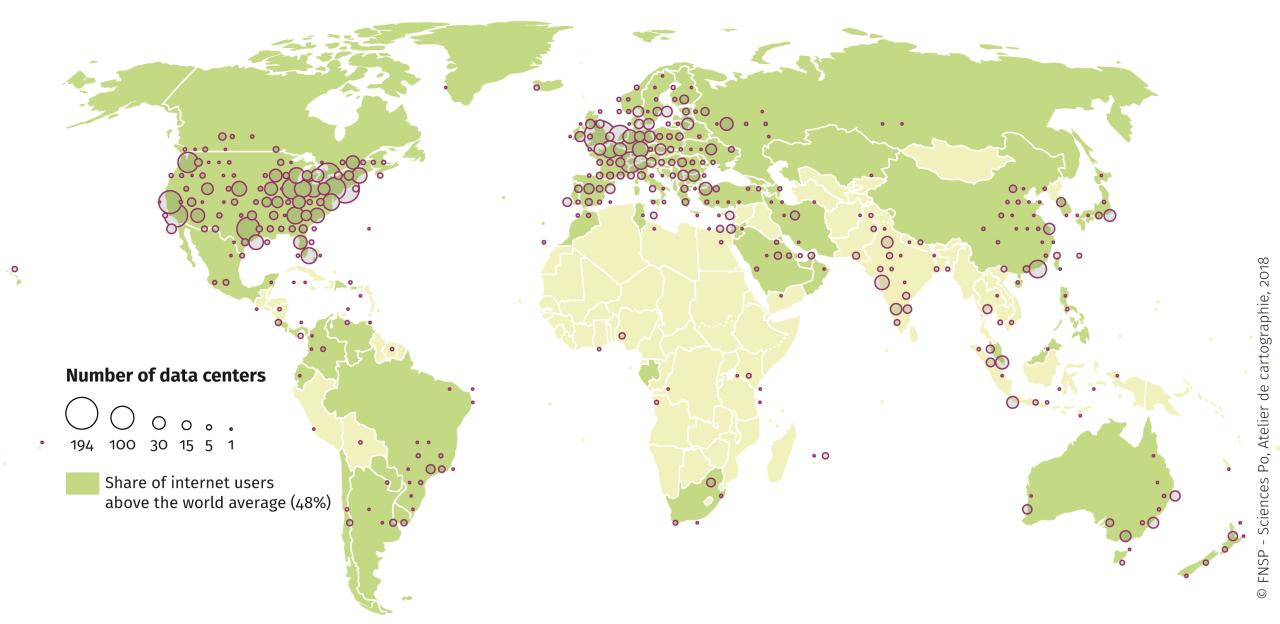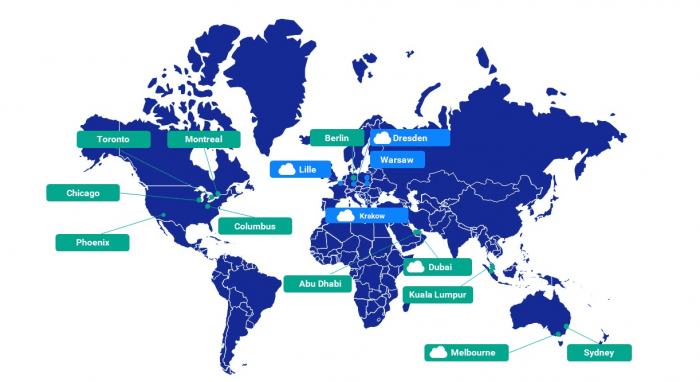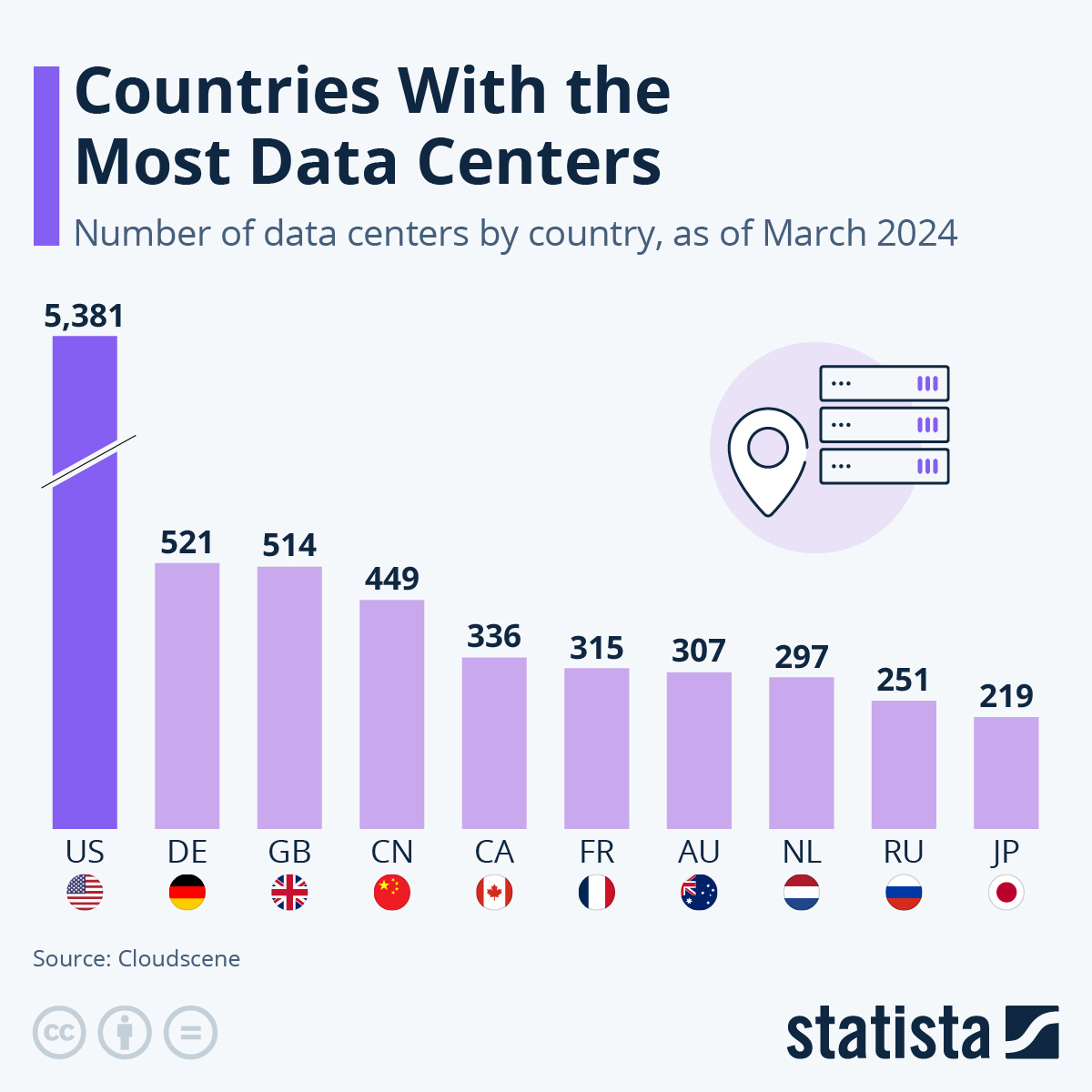Top data center locations in Asia and Europe: A Comprehensive Guide

Exploring the top data center locations in Asia and Europe unveils a world of technological hubs and connectivity hotspots. From the bustling data centers in Asia to the innovative facilities in Europe, this guide delves into the key aspects that make these locations stand out in the global data landscape.
As we navigate through the details of each region, you'll gain a deeper understanding of the infrastructure, operational costs, regulatory frameworks, and more that shape the data center industry in Asia and Europe.
Top data center locations in Asia

Asia is home to several key data center locations that offer a range of advantages for businesses looking to establish their presence in the region. These data center hubs provide state-of-the-art infrastructure, robust connectivity options, and competitive operational costs. Let's explore some of the top data center locations in Asia and the benefits they offer.
Singapore
Singapore is a leading data center hub in Asia, known for its advanced infrastructure, reliable power supply, and high network connectivity. The country's strategic location in Southeast Asia makes it an ideal gateway to the region, attracting multinational companies seeking to expand their operations.
Singapore also boasts a stable political environment and strong regulatory framework, making it a preferred choice for data center investments.
Hong Kong
Hong Kong is another prominent data center location in Asia, offering excellent connectivity to mainland China and other key markets in the region. The city's well-developed telecommunications infrastructure, low latency networks, and business-friendly policies make it an attractive destination for companies looking to establish their presence in Asia.
Hong Kong's proximity to major financial markets also adds to its appeal as a data center hub.
Japan
Japan is a technologically advanced country with a robust data center ecosystem, particularly in cities like Tokyo and Osaka. The country's reliable power supply, advanced cooling technologies, and seismic-resistant infrastructure make it an ideal location for data center operations. Japan's strict data protection laws and emphasis on cybersecurity further enhance its attractiveness for companies looking to store sensitive data securely.
India
India has emerged as a key data center market in Asia, with cities like Mumbai, Chennai, and Bangalore attracting significant investments from global tech giants. The country's large population, growing internet penetration, and government initiatives like Digital India have fueled the demand for data center services.
India's competitive operational costs and skilled workforce make it a popular destination for companies looking to expand their data center footprint in the region.
South Korea
South Korea is known for its advanced technology infrastructure and high-speed internet connectivity, making it an up-and-coming data center location in Asia. The country's focus on innovation, strong regulatory environment, and government support for the tech industry have positioned it as a promising market for data center investments.
South Korea's strategic location in Northeast Asia also offers connectivity advantages for companies looking to serve the region.
Top data center locations in Europe

Europe is home to several prominent data center locations known for their advanced infrastructure and connectivity. These locations serve as key hubs for businesses looking to establish a strong digital presence in the region.
Prominent data center locations in Europe
- London, United Kingdom: London is a major data center hub in Europe, offering a strategic location for businesses looking to access markets across the continent.
- Frankfurt, Germany: Known as the "Digital Capital" of Europe, Frankfurt is a leading data center location with a strong network connectivity.
- Amsterdam, Netherlands: Amsterdam is another key data center location in Europe, offering advanced infrastructure and excellent connectivity.
- Dublin, Ireland: Dublin has emerged as a popular data center location due to its favorable business environment and government support.
Energy efficiency initiatives in European data centers
European data centers prioritize energy efficiency and sustainability through initiatives such as:
- Usage of renewable energy sources
- Implementing innovative cooling technologies
- Participation in energy efficiency certification programs
Data privacy and security regulations impacting data centers in Europe
European data centers are subject to strict data privacy regulations such as the General Data Protection Regulation (GDPR). These regulations require data centers to adhere to stringent data protection standards to ensure the security and privacy of user data.
Impact of Brexit on data center operations in Europe
Brexit has posed challenges for data center operations in Europe, particularly in terms of data transfer and compliance with data protection regulations. Data centers located in the UK may face additional complexities in data management and international data transfers post-Brexit.
Final Thoughts

In conclusion, the top data center locations in Asia and Europe offer a glimpse into the dynamic world of digital infrastructure. From the robust connectivity in Asia to the stringent regulations in Europe, these regions continue to shape the future of data management on a global scale.
As technology advances and demands grow, these key locations will play a pivotal role in driving innovation and efficiency in the digital age.
Top FAQs
What are the key data center locations in Asia and Europe?
Key data center locations in Asia include Singapore, Hong Kong, and Tokyo, while in Europe, prominent hubs are London, Frankfurt, and Amsterdam.
How do data center operations in Asia and Europe differ in terms of cost?
While Asian data centers may offer lower operational costs initially, European data centers are known for their energy efficiency initiatives that can lead to long-term cost savings.
What impact has Brexit had on data center operations in Europe?
Brexit has introduced uncertainties in data privacy regulations and cross-border data transfers, affecting how data centers in Europe manage and store data for international clients.

